You are here
New Releases
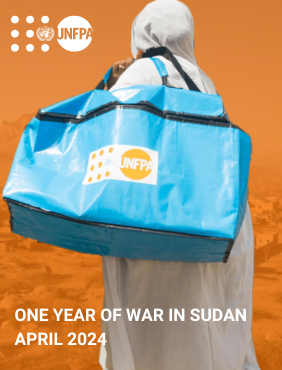
UNFPA Sudan Emergency Situation Report #12 - April 2024
One year of war in Sudan has triggered the world's largest displacement crisis. 8.5 million people have been forced to flee their homes, with over 6.5 million people displaced within Sudan, including 1 .56 million women and girls of reproductive age. Among them, nearly 155,500 are pregnant women, and an estimated 52,000 childbirths are anticipated in the next three months.
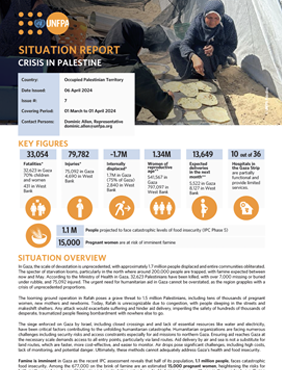
UNFPA Palestine Situation Report #7 - 06 April 2024
During March 2024, the hostilities in Gaza escalated, exacerbating an already unprecedented and dire humanitarian situation. The scale of devastation is overwhelming, with approximately 1.7 million people displaced and entire communities obliterated. The specter of starvation looms large, particularly in the north, where around 200,000 people are trapped, with famine expected between now and May. According to the Ministry of Health in Gaza, the death toll has reached 32,623 Palestinians, with over 7,000 missing or buried under rubble, and 75,092 injured. The urgent need for humanitarian aid in Gaza cannot be overstated as the region grapples with a crisis of unprecedented proportions.
UNFPA responded by delivering life-saving reproductive health supplies and gender-based violence prevention materials to health facilities and shelters across the region. This included essential pharmaceuticals, medical equipment for obstetric facilities, and postpartum kits for new mothers in IDP shelters. Additionally, UNFPA provided primary healthcare services, antenatal and postnatal care, and psychosocial support sessions for displaced women, girls, and adolescents.
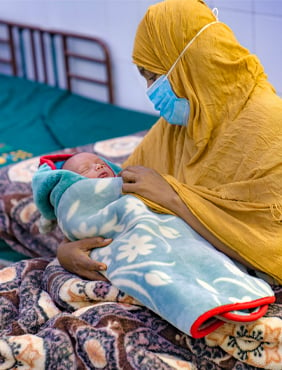
2024 UNFPA humanitarian response In Yemen
After nine years of conflict, the needs in Yemen remain immense. Over half of the country’s population, 18.2 million people, require some form of humanitarian assistance in 2024.
This is the result of multiple, overlapping emergencies pummelling the country: Violent conflict, economic collapse, recurrent climate-change-induced disasters, and severely disrupted public services, with recent regional conflict dynamics adding further layers of vulnerability.
Women and girls are hardest hit and their health needs remain urgent.
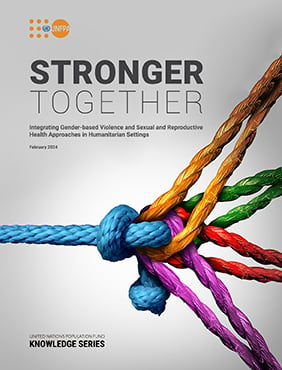
Stronger Together - Integrating Gender-based Violence and Sexual and Reproductive Health Approaches in Humanitarian Settings
In humanitarian contexts, the rights to universal access to sexual and reproductive health (SRH) and freedom from gender-based violence (GBV) remain paramount. Achieving these rights requires addressing the underlying causes of gender inequality and discrimination, which fuel both GBV and inadequate SRH outcomes. Humanitarian actors play a pivotal role in realising these rights by implementing measures to ensure women and girls have access to high-quality GBV and SRH services and information.
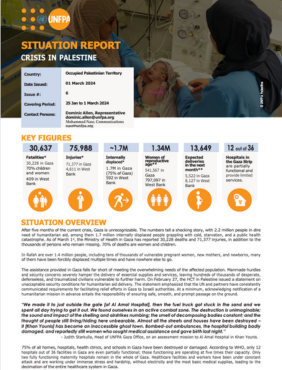
UNFPA Palestine Situation Report #6 - 3 March 2024
After five months of the current crisis, Gaza is unrecognizable. The numbers tell a shocking story, with 2.2 million people in dire need of humanitarian aid, among them 1.7 million internally displaced people grappling with cold, starvation, and a public health catastrophe. As of March 1st, the Ministry of Health in Gaza has reported 30,228 deaths and 71,377 injuries, in addition to the thousands of persons who remain missing. 70% of deaths are women and children.
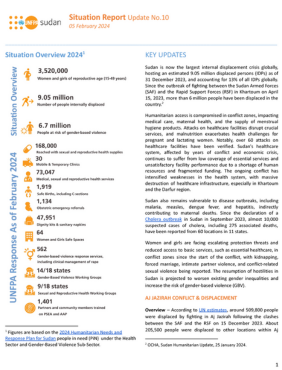
UNFPA Sudan Emergency Situation Report #10 - 05 February 2024
Sudan is now the largest internal displacement crisis globally, hosting an estimated 9.05 million displaced persons (IDPs) as of 31 December 2023, and accounting for 13 percent of all IDPs globally.
Ongoing conflict since April 15, 2023, has displaced over 6 million people, hampering humanitarian access in conflict zones.
Despite the challenging situation, UNFPA continues to ensure the provision of uninterrupted life-saving health and protection services, including clinical management of rape, in Wad Madani and Aj Jazirah states. UNFPA mapped the available GBV and SRH services in Aj Jazirah and established a remote service provision modality for survivors of GBV. Women and Girls Safe Spaces were established in IDP sites, offering psychosocial support and information. Units of Oxytocin were distributed for obstetric hemorrhage, the leading cause of preventable maternal deaths in Sudan. Other support provided includes emergency and obstetric care, deployment of care providers, mobile clinics, referral systems, and rehabilitation of health facilities.
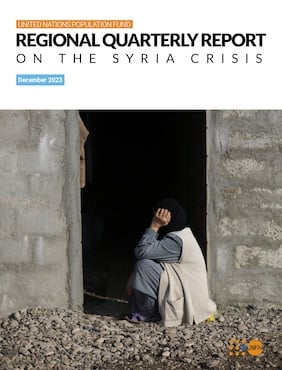
Regional Quarterly Report on the Syria Crisis
As of year-end 2023, the needs of Syrians and host communities are higher than ever, particularly in light of widespread economic collapse, the cumulative impact of 12 years of conflict, climate-related challenges, natural disasters, and various other socio-political factors.
This report offers a bird’s eye view of UNFPA’s operations within the context of the Syria crisis. The report is prepared by the UNFPA Regional Humanitarian Hub for Syria and the Arab States (The Hub) in Amman, and spans operations led by UNFPA offices in Türkiye, Lebanon, Jordan, Iraq, and Egypt, in addition to the Whole of Syria (operations led inside Syria, both from Damascus and cross-border via Gaziantep).
With the exception of data on service delivery points, the quantitative data presented in this report is cumulative, covering achievements made between January 2023 and the reporting month.
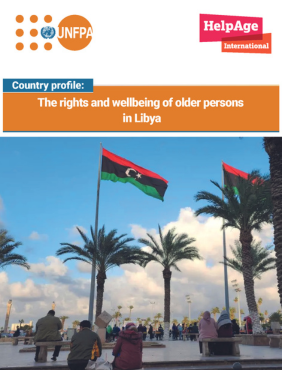
The rights and wellbeing of older persons in Libya
These country profiles map the situation of older persons in seven countries in the Arab region: Kuwait, Algeria, Lebanon, Morocco, Qatar, Syria, and the UAE. The profiles were developed by HelpAge International with support from the UNFPA Arab States Regional Office.
They shed light on the situation of older women and men in relation to income, health, education, autonomy, and safety. Additionally, they highlight how national systems and strategies address the needs and rights of aging people in these areas.
The aim of these country profiles is to help monitor the progress achieved towards the inclusion of older persons in the Sustainable Development Goals. They also aim to identify opportunities to strengthen national strategies and data.
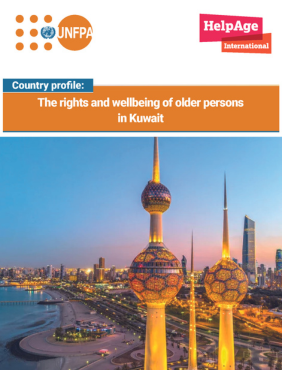
The rights and wellbeing of older persons in Kuwait
These country profiles map the situation of older persons in seven countries in the Arab region: Kuwait, Algeria, Lebanon, Morocco, Qatar, Syria, and the UAE. The profiles were developed by HelpAge International with support from the UNFPA Arab States Regional Office.
They shed light on the situation of older women and men in relation to income, health, education, autonomy, and safety. Additionally, they highlight how national systems and strategies address the needs and rights of aging people in these areas.
The aim of these country profiles is to help monitor the progress achieved towards the inclusion of older persons in the Sustainable Development Goals. They also aim to identify opportunities to strengthen national strategies and data.
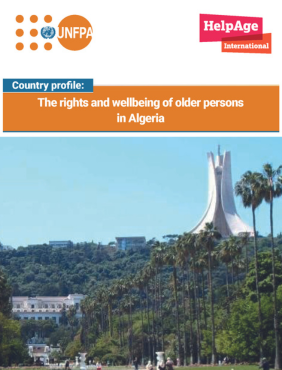
The rights and wellbeing of older persons in Algeria
These country profiles map the situation of older persons in seven countries in the Arab region: Kuwait, Algeria, Lebanon, Morocco, Qatar, Syria, and the UAE. The profiles were developed by HelpAge International with support from the UNFPA Arab States Regional Office.
They shed light on the situation of older women and men in relation to income, health, education, autonomy, and safety. Additionally, they highlight how national systems and strategies address the needs and rights of aging people in these areas.
The aim of these country profiles is to help monitor the progress achieved towards the inclusion of older persons in the Sustainable Development Goals. They also aim to identify opportunities to strengthen national strategies and data.